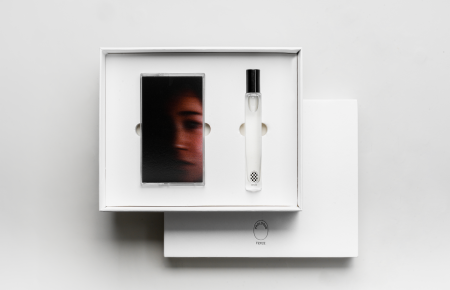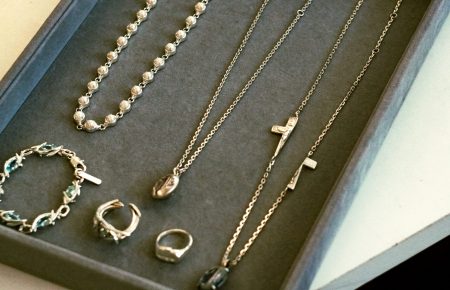This story is presented in partnership with Neocha, a fellow creative publication based in Asia and established in 2006. This time, we look at the independent Korean magazine known simply as B, which focuses on one particular brand per issue without any compensation.
“Colors can be read.” This was my stunned takeaway from reading “PANTONE,” the 46th issue of B magazine.
That a simple print publication could so thoroughly alter my perception, comprehension, and attitude towards a subject—a brand, no less—astounded me. Long an admirer of Pantone, I came away with an even deeper appreciation of it. But even readers unfamiliar with Pantone, or any other brand featured in an issue of B, will be left inspired and hungry for more.
B is an independent, ad-free publication produced in South Korea. In each issue, it offers insightful stories on a specific brand, but it abides by a strict editorial policy and receives no financial compensation in return. Recently we caught up with editor-in-chief Eunsung Park to learn more about his vision for this one-of-a-kind magazine, and about his thoughts on the future of print media.
“我竟然能读出色彩。”这是我第一次读到《B》杂志第 46 期的感受,那一期的主题是“潘通色卡”。这个看似普通的出版物,却神奇地影响了我对一个品牌的认知、理解和态度。加之原本就对此感兴趣的心态,再去探索杂志内容背后的意义,我会对它越爱越深;而哪怕是原本不熟悉它的人,在看完整本杂志后,我相信你们也会更想要了解它的故事。
《B》杂志是一本无广告的、独立出版的月刊杂志。它用其独有的调性为读者介绍全球值得推荐的品牌和它们的故事。独特的选题标准,独特的撰写角度以及独特的视角,组成了这本独一无二的杂志。



Neocha: Your official criteria for featuring a brand are price, practicality, beauty, and philosophy. What do these mean to you?
Park: Our publisher, Suyong Joh, created those criteria in the initial planning stages of the magazine. But that doesn’t mean we use price, practicality, beauty, and philosophy as metrics to evaluate the brands we choose. Instead, we believe a good brand can’t rely only a single factor, whether that’s its price point, its usefulness, its design, or its ethos. All these factors must combine to form a balance that fits the brand. What we want to convey is that each brand has its own way of achieving that balance—just as every beautiful person has their own balance of different charms.
Neocha:你们对于品牌的筛选标准是价格、实用性、美学和品牌理念。这些标准对你来说代表什么?
Park:这些标准是杂志创始人 Suyong Joh 在筹办杂志的初始阶段所订立的。但是,这并不意味着我们在选择品牌时会将美学、价格、实用、品牌理念作为评价品牌的指标。相反,我们相信,一个好的品牌不能依赖单一的指标,不管是价格、实用性、设计或是品牌精神。所有这些因素都必须结合起来,达至适合该品牌的平衡。我们要传达的理念是,每个品牌都有自己独特的方式来达到这种平衡,正如每个人的美丽都是各种魅力组成的平衡。


Neocha: What’s your best-selling issue? Do you have a personal favorite?
Park: “Lego” and “Muji” are our best-selling issues. Our newer issues like “Acne Studios” and “Monocle” have had a good amount of sales. Our city issues always do well. If I were to choose an issue from that pool, it would be “Monocle.” It was a meaningful experience to cover a fellow media brand, and we got positive energy simply by following their journey and observing their achievements.
Neocha:你们最畅销的杂志是哪一期?你个人最喜欢哪一期?
Park:“乐高”和“无印良品”是我们最畅销的两期杂志。我们最近推出的杂志,如 “Acne Studios” 和 “Monocle” 销量也很好。我们的城市主题杂志也卖得不错。如果一定要选一本个人最爱,可能是 “Monocle” 这一期。以一个同行媒体品牌为主题是一次挺有意义的经验,我们在了解他们的发展历史和成就这个过程中也获得了满满的正能量。
Neocha: How much time do you spend researching a brand when starting a new issue?
Park: We always approach the brand as if we knew nothing about it. If we think we already know it well, we run the risk of falling into boxed thinking, but if we keep an open mind, we discover new perspectives. That’s why we try not to overstudy the brand beforehand. We believe that rich stories should come out of the people we meet, and we try to keep a keen eye for observation by limiting our own voice.
Neocha:筹办新一期杂志前,你们一般要花多少时间来研究一个品牌?
Park:我们始终坚持以“一无所知”的态度去了解品牌。如果我们认为自己已经很了解这个品牌,很容易就会掉入固定的思维,但如果能够保持开放的心态,就有可能有新的发现。这也是为什么我们尽量不事先过度深入研究品牌。丰富的故事应该来自于我们遇到的人,同时,我们会努力限制我们自己的声音,以保持敏锐的观察。


Neocha: B is perfect for aspiring entrepreneurs, people in search of unbiased information, or anyone interested in brand marketing and management. But not all readers may be equally familiar with every brand. How do you appeal to a diverse audience?
Park: The point is not how well readers know the brand, but rather how well we, as creators of the magazine, refrain from taking a know-it-all attitude. Instead of providing answers, we hope to help people pay attention to what’s happening. I believe you can do that regardless of your depth of knowledge.
Neocha:《B》杂志非常适合有抱负的企业家,那些想寻找有关品牌客观信息的人,或是任何对品牌营销和管理有兴趣的人。但并非所有的读者都熟悉每一个品牌。你们要如何吸引如此广泛的读者群?
Park:问题的关键不在于读者要多了解一个品牌,而是我们作为杂志的创造者如何避免采取一种“已知”的态度。我们希望能帮助读者去注意当下,而不是提供答案。我相信不管你懂多少都是可以做到这一点的。
Neocha: You’ve done countless interviews. Which would you say is the most memorable?
Park: We’ve done too many memorable interviews. But if I were to choose one from the past year, it would be the interview with architect Andreas Fornell in the “Acne Studios” issue. He worked at Acne Studios in the past and now manages his own firm. As someone with experience from both the inside and the outside, he could look on the brand with affection and provide a pointed assessment all at once.
Neocha: 你们做过非常多的采访。哪一次对你来说是最难忘的?
Park: 我们做过太多令人难忘的采访。但如果要我从去年的采访中选一个,那应该是在 “Acne Studios” 那一期里与建筑师 Andreas Fornell 的采访。他曾在 Acne Studios 工作,现在在经营自己的公司。作为一个有来自内部和外部经验的人,他可以对这个品牌提供充满感情又一针见血的评价。
“We believe a good brand can’t rely only a single factor, whether that’s its price point, its usefulness, its design, or its ethos. All these factors must combine to form a balance that fits the brand.”
Neocha: Since its launch in 2011, B has released more than 60 issues. What sort of challenges has it faced along the way?
Park: We face different difficulties with every issue. We may have published 66 books, built up a sales record, and made a name for ourselves, but that doesn’t mean the process has become any steadier or more peaceful. And it will continue to be a challenge in the future. Creating a brand, especially sustaining a media brand, is like a battle. Fighting through unexpected issues and seeking solutions gives us an outlet for our creativity.
Neocha: 自2011年推出,《B》至今已经发行了 60 多期杂志。在这个过程中,杂志面临过什么样的挑战?
Park: 我们办每一期杂志都会面临不同的困难。即便我们可能已经出版了 66 期杂志,有了不错的销售记录,也有了一定的知名度,但这并不意味每期杂志的筹办就能变得更顺利或简单。在未来,我们依然要面临各种的挑战。创造一个品牌,尤其是维持一个媒体品牌,就像是一场战役。在应对各种意想不到的问题、寻求解决方案的过程中,我们也是在发挥创意。
Neocha: “Independent” is a label that’s thrown around a lot nowadays. What qualities do you think make a magazine truly independent?
Park: In my opinion, independent magazines don’t rely on typical advertising models the way legacy media do. Instead, their creators take more risks taking a freer and bolder approach to content planning and creation.
Neocha: “独立”是现在常用的一个标签。你认为一本杂志应该有哪些品质才能真正称得上独立?
Park: 在我看来,独立杂志不应像传统媒体那样依赖广告。相反,他们的创办者要勇于承担更大的风险,在内容策划和创意方面会采取更自由、更大胆的做法。


Neocha: Where do you see print media headed in Asia?
Park: I think it’s important to see print media outside a regional context—to see it as its own thing. In countries where English isn’t the main language, people might think language is a barrier. Yet if we leverage the power of the content itself, that limitation becomes meaningless. As for the future, we should focus on what print media can do best, instead of doing the same things as digital media. I believe in the lasting strength of the printed word, the flow and pace of stories told on paper.
Neocha: 你觉得亚洲纸媒的未来如何?
Park: 很重要的一点是要抛开区域来思考纸媒,把它单独地来看待。在非英语国家,人们可能会认为语言是一个障碍。然而,如果我们利用内容本身的力量,这种限制将不再存在。至于未来,我们应该专注于纸媒的优势之处,而不是与数字媒体做同样的事情。我相信印刷出来的文字,以及纸媒呈现的故事节奏感是有着持久性力量的。
To see more of B Magazine including its most recent Issue No. 70 Porsche, head to the publication’s website.


























